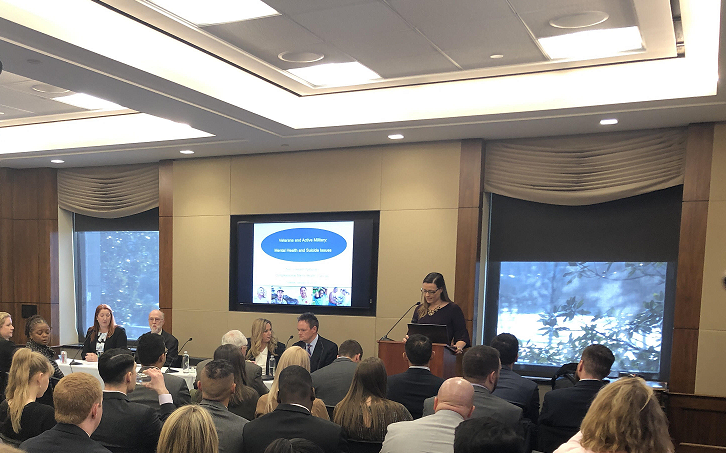Behavioral Health Aspects of Depression and Anxiety in the American Male
Identifying Areas for Patient-Centered Outcome-Oriented Needs, Best Practices, and Future Research – Panel Discussion
May 10, 2019
There is a great deal of contemporary debate about how to better recognize depression and anxiety in males and avoid the direct and indirect consequences of unmanaged or poorly managed depression, which may include poor educational or work productivity, family discord, social isolation, anger, violence towards others or one’s self, and suicide.
Men’s Health Network, a 27-year-old international nonprofit organization whose mission is advocacy and dissemination of men’s health issues, received an award from the Patient-Centered Outcomes Research Institute (PCORI) to convene an important roundtable discussion to identify the informational gaps in the areas of behavioral and mental health practice and evaluation among males.
A group of distinguished industry experts will join us in a discussion on Behavioral Health Aspects of Depression and Anxiety in the American Male: Identifying Areas for Patient-Centered Outcome-Oriented Needs, Best Practices, and Future Research. This meeting will take place Friday, May 10th, 2019 in Washington, D.C.
The goal is to develop a better understanding among the professional community of the ways that men express depression that might be different than females and encourage conversation around the probable need to develop unique screening tools to identify depression in males by leveraging the existing expertise on to the sub-population of boys and men. By establishing a dialogue among experts in various sectors of health, community, and research to examine the outcomes of existing screening tools and programs that have been used, we are also seeking to better understand which approaches have produced positive and negative outcomes which will in turn, help organizations craft and disseminate better, more-gender-specific and socio-culturally optimized tools. It will also assist in identifying the programmatic failure, if there is failure, to identify depression, stress, and related mental health issues in males which may adversely affect intended outcomes.
Additionally, this conference will help:
- Determine what are the consequences of depression in the home, the community, and the nation as an area of significant need;
- Review and evaluate existing tools and procedures that are adequate to identify mental health issues in males;
- Identify the current clinical best practices for identification of male depression;
- Highlight areas for further gender-specific research and protocols to address gaps in our current knowledge and tools.
Working Agenda
Ana Tomsic, MPH, CHES, Vice-President at Men’s Health Network will moderate the panel.
Working Title/Content: Behavioral Health Aspects of Depression and Anxiety in the American Male: Identifying Areas for Patient-Centered Outcome-Oriented Needs, Best Practices, and Future Research.
Continental Breakfast - 7:30-8:30 AM
Welcome, opening comments, and program theme and objective - 8:30-8:45 AM
Panel self-introductions - 8:45-9:00 AM
Defining the Problem - 9:00-10:30 AM
- What do we know about prevalence, recognition, and management of depression in males?
- How is it the same/different in sub-populations such as youth, adolescents, young adults, elderly, and vulnerable postulations?
AM Break - 10:30-10:45 AM
Discussion - 10:45-Noon
- What tools are available for screening depression in males?
- Tool validity in males and subpopulations?
- How do we assess their effectiveness?
- How and by whom are their outcomes measured?
Lunch Break - Noon-12:45 PM
Consequences of Male Depression - 12:45-1:45 PM
- How are the clinical outcomes of properly managed depression measured?
- How are the consequences of unrecognized and inadequately addressed depression measured?
- In the clinical setting, home, educational environment
- Workplace, military/first responders, incarcerated, and ALF residents?
- What are the direct and indirect consequences of clinical depression in males?
- Link between depression and violence
Moving Forward - 1:45-2:45 PM
- What outcome-oriented research is needed in these areas?
- How do programs with successful outcome become adopted – what are drivers what are impediments?
- How to best disseminate information to stakeholders?
Closing Comments and Next Steps - 2:45-3:00 PM
This conference was partially funded through a Patient-Centered Outcomes Research Institute (PCORI) Engagement Award Initiative The content does not necessarily represent the views PCORI, its Board of Governors, or Methodology Committee.

